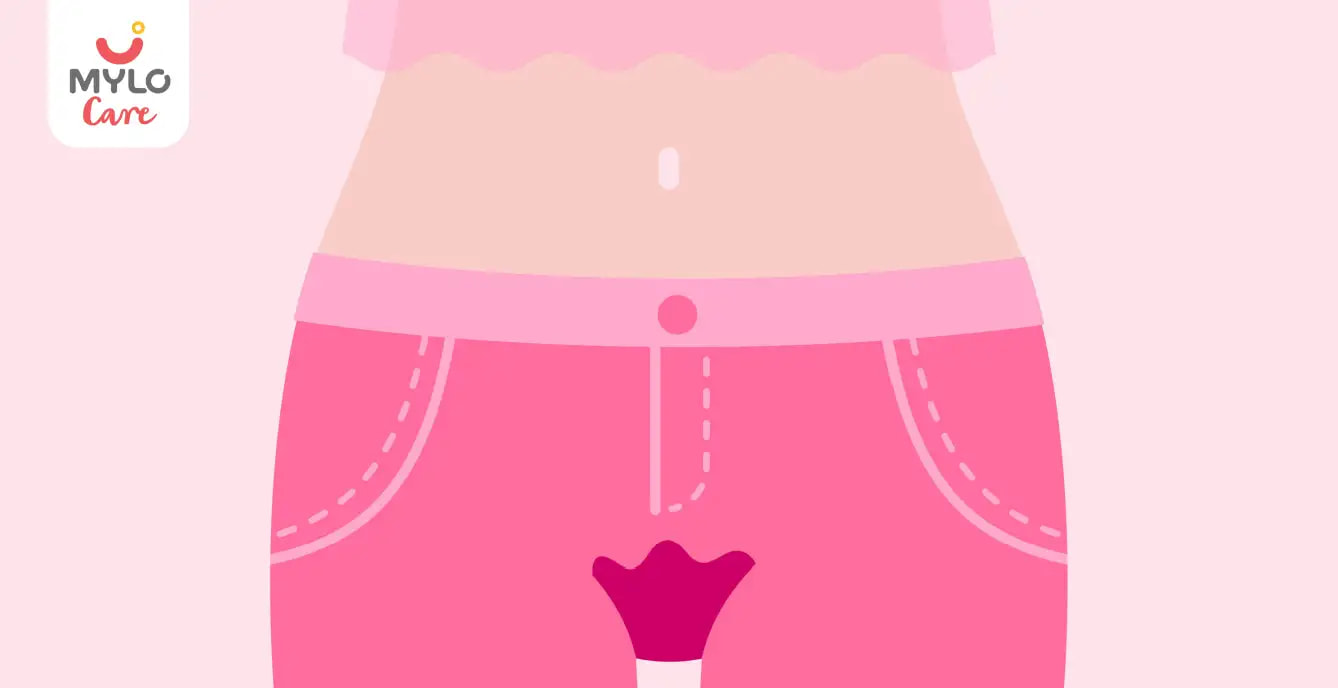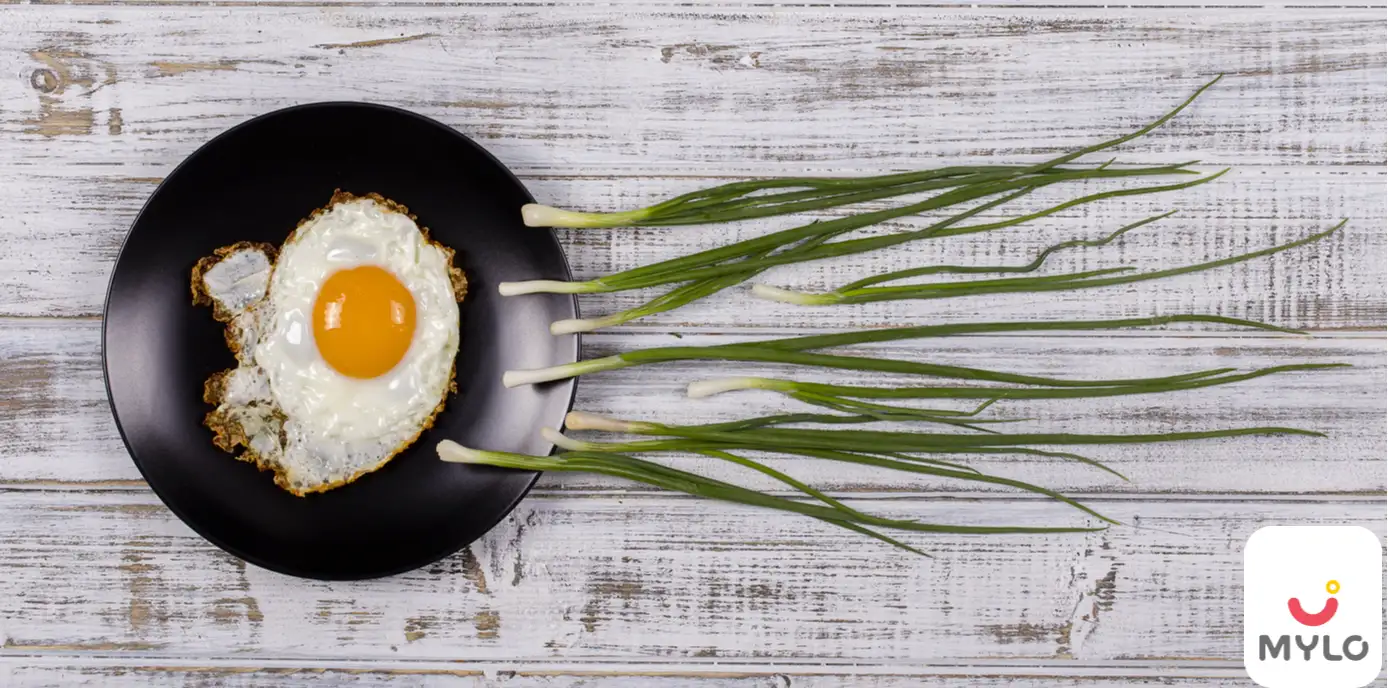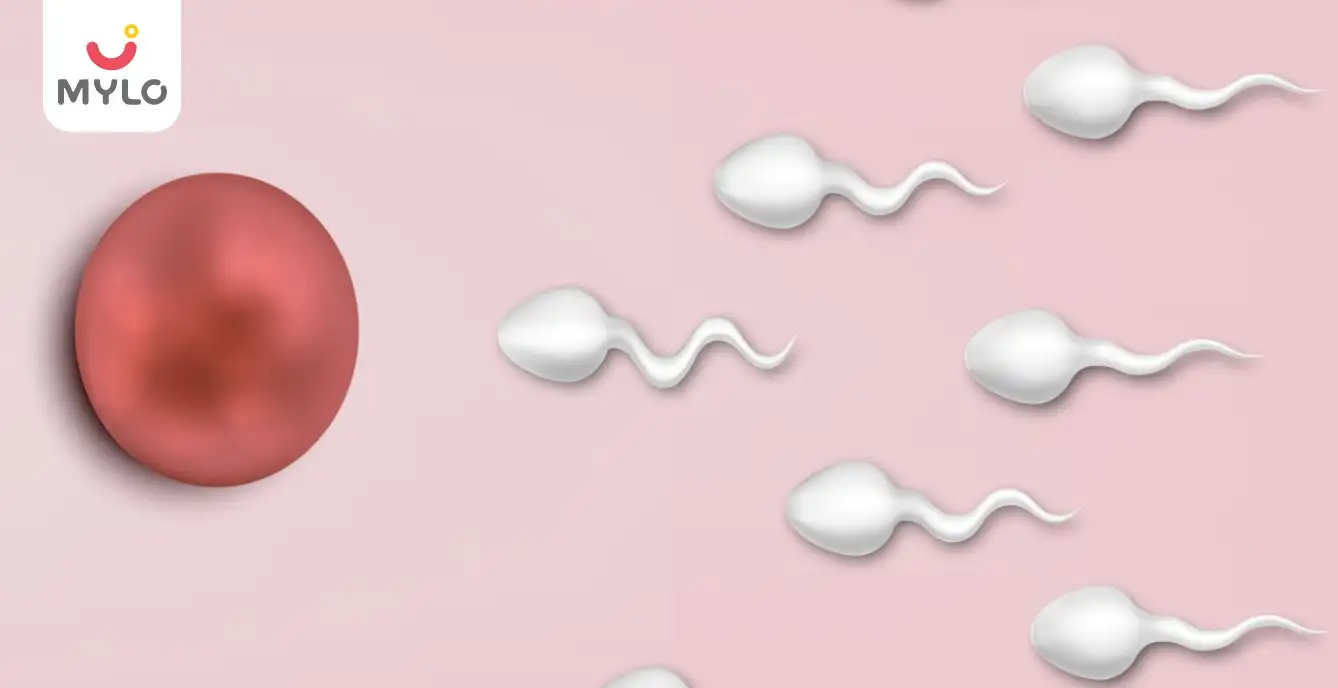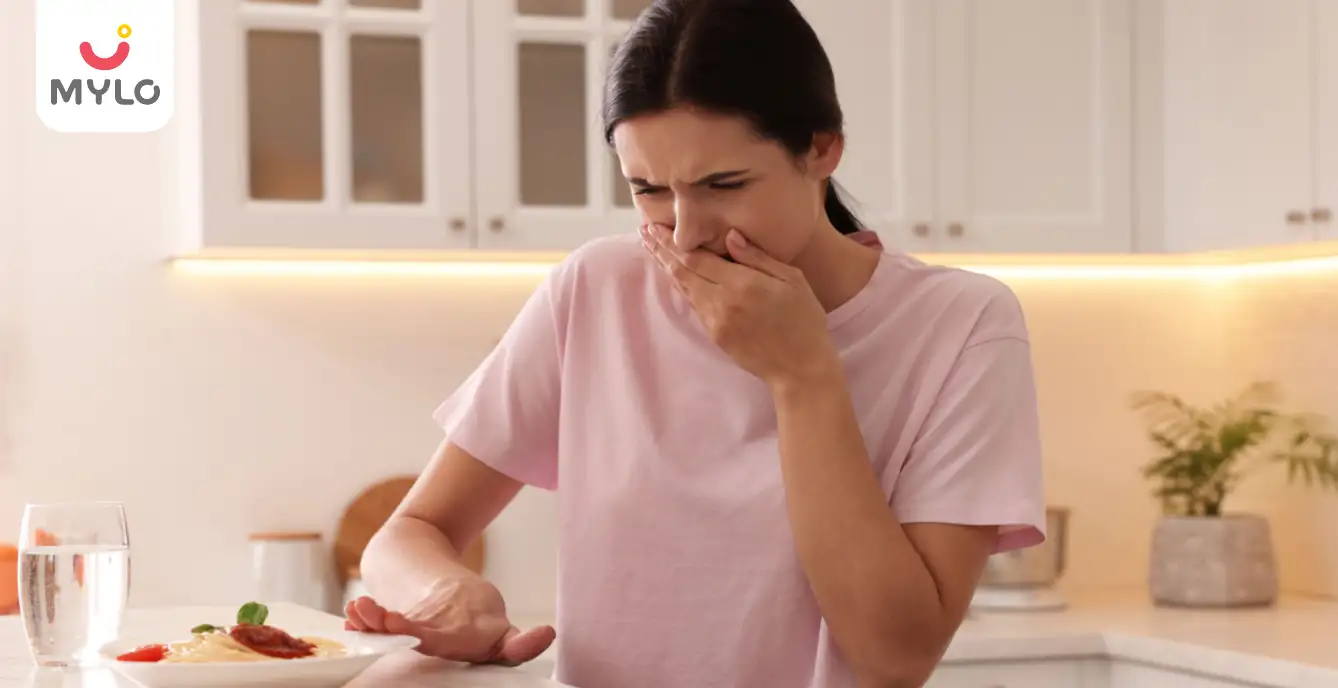Home

Ovulation

Ovulation Bleeding: The Ultimate Guide to Causes, Symptoms and Management
In this Article

Ovulation
Ovulation Bleeding: The Ultimate Guide to Causes, Symptoms and Management
Updated on 18 December 2023
Are you experiencing some unexpected spotting in the middle of your menstrual cycle? Don't worry, you're not alone. Ovulation bleeding, also known as mid-cycle bleeding, is a fascinating phenomenon that occurs when you release an egg from your ovary. It's like a little message from your body, letting you know that your reproductive system is hard at work.
But what exactly causes this spotting? And how can you manage it? In this article, we'll delve into its causes, symptoms, and management strategies.
Is it normal to experience bleeding during ovulation?
Bleeding or spotting during ovulation is more common than one might think. While many people associate bleeding with their monthly period, it is not uncommon for some women to experience it during ovulation. This phenomenon, known as ovulation bleeding, can be a cause for concern or confusion for those experiencing it.
What does a bloody discharge during ovulation look like?
Ovulation spotting typically presents itself as a light pink or brownish discharge. It may also appear as small spots of blood on toilet tissue or underwear. The consistency can range from thin and watery to slightly thicker than normal cervical mucus. It's important to note that the appearance can vary from person to person, so it may not always follow the same pattern or color.
You may also like: White Discharge After Ovulation: A Normal Occurrence or Cause for Concern?
How much spotting during ovulation is considered normal?
The amount of spotting can vary from woman to woman. Some may only experience a few drops of blood, while others may have a slightly heavier flow. Generally, if the bleeding is light and lasts for a day or two, it is considered normal.
However, if the bleeding is heavy, prolonged, or accompanied by severe pain, it is advisable to consult a healthcare professional to rule out any underlying issues.
What is the difference between ovulation bleeding and a period?
Ovulation and menstrual bleeding may seem similar, but there are key differences between the two. Menstrual bleeding occurs as a result of the shedding of the uterine lining, while bleeding during ovulation is caused by the release of an egg from the ovary.
Menstrual bleeding tends to be heavier and last for several days, whereas spotting during ovulation is typically lighter and shorter in duration. Understanding these differences can help differentiate between the two and provide clarity regarding any unusual bleeding.
You may also like: Symptoms After Ovulation If Pregnant 1-14 DPO (Days Past Ovulation)
What are the causes of bleeding during ovulation?
Let us now understand some reasons for blood discharge during ovulation:
1. Hormonal fluctuations
Hormonal changes during the menstrual cycle can sometimes lead to bleeding.
2. Follicle rupture
When the follicle containing the egg ruptures, it can cause a small amount of bleeding.
3. Cervical irritation
The cervix may become slightly irritated during ovulation, leading to spotting or bleeding.
4. Polyps or fibroids
The presence of polyps or fibroids in the uterus can cause ovulation spotting.
5. Endometriosis
Women with endometriosis may experience ovulation bleeding due to the abnormal growth of uterine tissue.
6. Ovarian cysts
Certain types of ovarian cysts can cause bleeding during ovulation.
7. Certain medications
Some medications, such as fertility drugs, can increase the likelihood of bleeding.
When to see a doctor?
While ovulation bleeding is generally considered normal, there are instances where medical attention may be necessary. If you experience any of the following, it is advisable to consult a healthcare professional:
-
Heavy bleeding that lasts for more than a few days
-
Severe pain accompanied by bleeding
-
Bleeding between periods
-
Difficulty conceiving
A doctor can evaluate your symptoms, perform any necessary tests, and provide appropriate guidance based on your individual circumstances.
FAQ’s
1. Is spotting during ovulation a good sign?
Spotting can be seen as a positive sign for those trying to conceive. It indicates that the body is going through the natural process of releasing an egg, increasing the chances of pregnancy. However, it's not a guarantee of fertility.
2. Bleeding during ovulation, am I pregnant?
Bleeding during ovulation does not necessarily indicate pregnancy. While it can coincide with the time of implantation, it is not a definitive sign of pregnancy. If you suspect you might be pregnant, it is best to take a home pregnancy test or consult a healthcare professional for confirmation.
3. Bleeding during ovulation for the first time, should I see a doctor?
If you experience bloody discharge during ovulation for the first time and are unsure about its cause or concerned about your health, it is advisable to seek medical advice. A doctor can evaluate your symptoms, perform any necessary tests, and provide reassurance or appropriate treatment if needed.
Final Thoughts
Experiencing bleeding or spotting during ovulation can be puzzling and worrisome for many women. However, it is important to remember that ovulation bleeding is generally considered normal and can vary from person to person. If you have any concerns or questions, it is always best to consult a healthcare professional who can provide personalized guidance based on your individual circumstances.
References
1. BERCOVICI B, BROMBERG YM. (1956). Mechanism of ovulation bleeding. Acta Endocrinol (Copenh).
2. Holesh JE, Bass AN, Lord M. (2023). Physiology, Ovulation. In: StatPearls [Internet]. Treasure Island (FL): StatPearls Publishing
3. GRICE H, HURTIG A. (1961). Experimental studies on vaginal bleeding at ovulation time. Can Med Assoc J.



Written by
Anandita Sharma
Drawing on more than a decade of expertise in administration, Anandita Sharma currently serves as a content operations e
Read MoreGet baby's diet chart, and growth tips

Related Articles
Related Questions
Influenza and boostrix injection kisiko laga hai kya 8 month pregnancy me and q lagta hai ye plz reply me

Hai.... My last period was in feb 24. I tested in 40 th day morning 3:30 .. That is faint line .. I conculed mylo thz app also.... And I asked tha dr wait for 3 to 5 days ... Im also waiting ... Then I test today 4:15 test is sooooo faint ... And I feel in ma body no pregnancy symptoms. What can I do .

Baby kicks KB Marta hai Plz tell mi

PCOD kya hota hai

How to detect pcos

Related Topics
RECENTLY PUBLISHED ARTICLES
our most recent articles

Ovulation
A Guide to Recognizing Symptoms of Ovulation After HCG Injection

Ovaries
Bulky Ovaries Explained: What Every Woman Should Be Aware Of

Getting Pregnant
Ovulation: The Key to Maximizing Your Chances of Conception and Pregnancy

Fun & Humour
The Ultimate Compilation of Fancy Dress Ideas for Young Kids

Conception
How Long Does Sperm Take to Reach the Egg?

Ovulation
Pregnancy Symptoms After Ovulation Day by Day: Exploring the Daily Progression
- Signs Ovulation is Over: Your Guide to Understanding the End of Ovulation
- Top 15 Akbar and Birbal Stories for Young Kids
- How Soon After an Abortion Can You Get Pregnant?
- PCOS and Sex: Exploring Impact on Health and Debunking Common Myths
- Papaya for PCOS: Exploring the Link and How It Can Positively Impact Your Health
- How to Boost Fertility in Your 30s: The Ultimate Guide
- Anovulation Meaning Explained: What You Need to Know About Its Causes & Treatment
- Basal Body Temperature: How It Can Help You Track Ovulation?
- Ovulation Pain: Is It Normal or a Cause for Concern?
- Special Home Remedies For Gas During Pregnancy
- PCOD Problem After Marriage: Debunking Common Misconceptions and Finding Solutions
- White Discharge After Ovulation: A Normal Occurrence or Cause for Concern?
- Normal Ovary Size: How It Varies and What It Means for You
- 2024 Calendar with Holidays and Festivals of India


AWARDS AND RECOGNITION

Mylo wins Forbes D2C Disruptor award

Mylo wins The Economic Times Promising Brands 2022
AS SEEN IN

- Mylo Care: Effective and science-backed personal care and wellness solutions for a joyful you.
- Mylo Baby: Science-backed, gentle and effective personal care & hygiene range for your little one.
- Mylo Community: Trusted and empathetic community of 10mn+ parents and experts.
Product Categories
baby carrier | baby soap | baby wipes | stretch marks cream | baby cream | baby shampoo | baby massage oil | baby hair oil | stretch marks oil | baby body wash | baby powder | baby lotion | diaper rash cream | newborn diapers | teether | baby kajal | baby diapers | cloth diapers |




